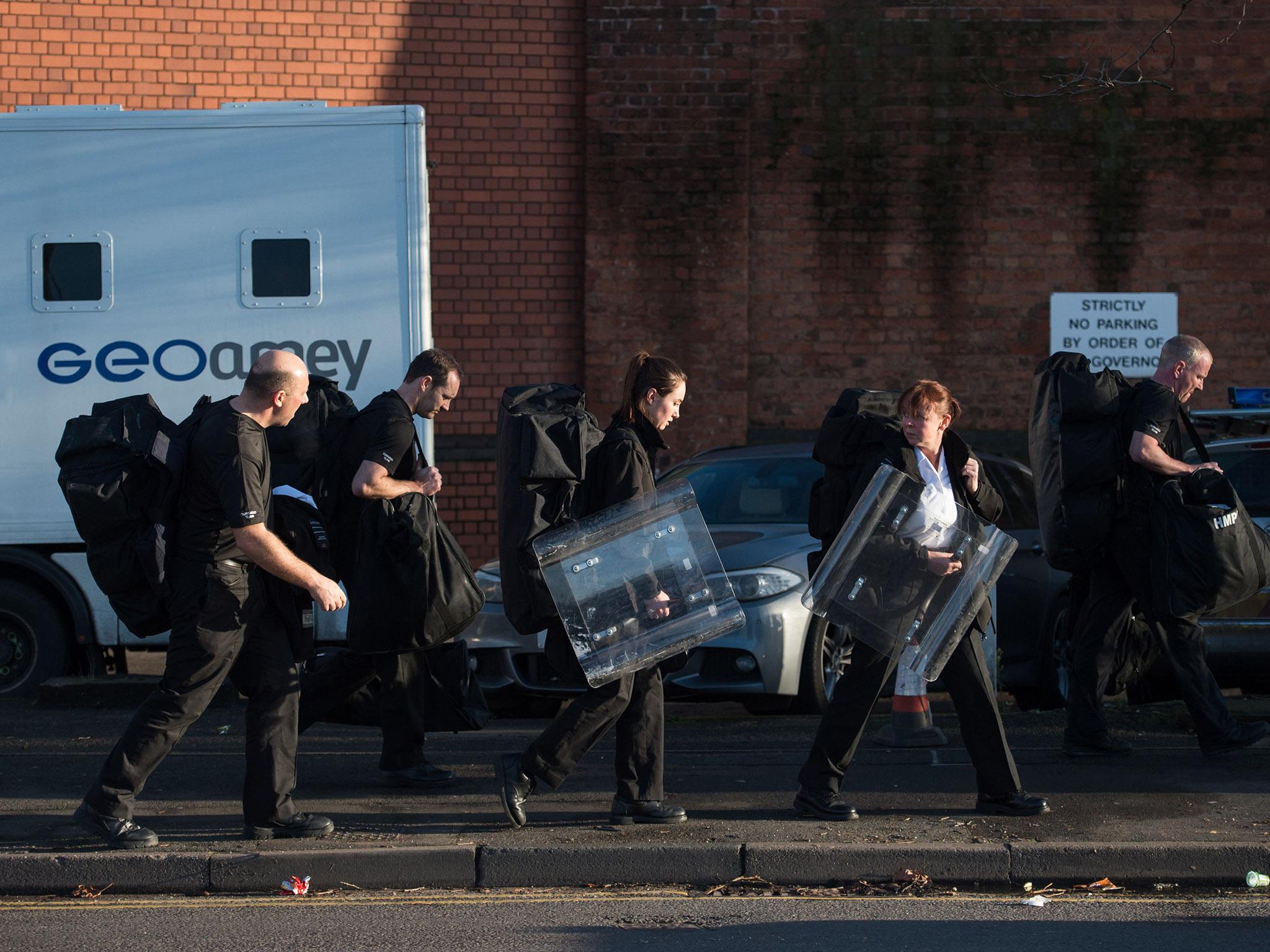Prison works: as a way to create more criminals and, as now, riots and disorder
With little public sympathy or political interest, the prisons where so many criminals are sent to rot are themselves rotting

Your support helps us to tell the story
From reproductive rights to climate change to Big Tech, The Independent is on the ground when the story is developing. Whether it's investigating the financials of Elon Musk's pro-Trump PAC or producing our latest documentary, 'The A Word', which shines a light on the American women fighting for reproductive rights, we know how important it is to parse out the facts from the messaging.
At such a critical moment in US history, we need reporters on the ground. Your donation allows us to keep sending journalists to speak to both sides of the story.
The Independent is trusted by Americans across the entire political spectrum. And unlike many other quality news outlets, we choose not to lock Americans out of our reporting and analysis with paywalls. We believe quality journalism should be available to everyone, paid for by those who can afford it.
Your support makes all the difference.The signs of critical strain in the British prison system are all too obvious: suicides, running at about two a week; assaults on staff, around 60 a day; and now, as at HMP Birmingham, riots.
Nor are the reasons for the collapse in order at Birmingham and elsewhere hard to discover. Overcrowding has long been the norm in jails, and it remains the single most combustible element in an unhealthy mix of prison conditions.
With little public sympathy or political interest, the prisons where so many criminals are sent to rot are themselves rotting, and have never had the investment required. Last year a programme to build nine new facilities was announced, but these will mostly replace older jails, and the net new capacity of modern and humane places will be modest. Liz Truss, the Justice Secretary, is only the latest minister to learn the hard way that the public’s desire for custodial sentences is incompatible with its reluctance to spend money on prisons and prisoners. Soon, for example, some of our competitors in the press will embark on their annual ritual of presenting an unremarkable prison Christmas dinner as some kind of bacchanalian feast for the jailbirds.
The truth is that prisons are not holiday camps, and never have been. Understaffed, too many operate under “lockdown”, with prisoners confined to their cells for most of the day with little exercise and enforced boredom growing into a cruel additional punishment.
Our prisons are not working, despite the foolish slogan of one of Ms Truss’s predecessors, Michael Howard. The fall in crime in recent decades has happened despite, not because of, our prison policy. Our prisons succeed only in turning petty criminals into hardened ones.
Drugs, too, are part of the problem, with so-called “legal highs”, now illegal, changing the prison dynamic for the worse. Prison officers seem demoralised and underpaid, and are escaping to less dangerous work at an alarming rate – more than 30 quit at Birmingham in recent weeks. The privatisation of parts of the prison system into the hands of G4S and others may have contributed to some problems, but, as with the crisis in social care and the NHS, the fundamental problem is a lack of funding rather than rampant profiteering.
Unlike the care system and the health service, though, the authorities can do something about the demand for prison services, and that is to scale back custodial sentencing, which will have to happen anyway as an emergency measure. There are better ways to punish many people who harm society than banging them up, and the alternatives are often cheaper as well.
Everyone knows that, but so long as politicians are afraid to say so, the prison system will stay broken.
Join our commenting forum
Join thought-provoking conversations, follow other Independent readers and see their replies
Comments